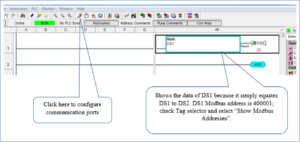Finding a suitable training program for beginners in PLC programming may be a challenge today. With numerous online courses being offered, choosing the right training program becomes an onerous task. Below are some tips you may follow to help guide you when looking for an online training program that covers the basic fundamentals.
Generally, a good training program for beginners should have the following main features:
1. PLC Theoretical Principles
The fundamentals of PLC and PLC programming help the learners to understand how PLCs generally work. This makes it easier to learn how to program PLCs and enable learners to transfer skills to PLC types they have never programmed before. When looking for a training program or course, make sure to read through the program’s outline to ensure that the fundamentals are covered.
Every PLC program should at least cover an introduction to PLCs, the basics of inputs and outputs, counters, and math instructions. Without a basic understanding on these items, PLC programming becomes very difficult
2. Guided programming activities
This is what gets you started! It is important simple examples with clear inputs and expected outputs are provided. Although this is hard to judge without looking at the program’s material first, it is important to keep in mind once you have signed up for a program / course.

3. Open-ended mini projects
These projects typically teach you how to convert automation problems into logic that can be programmed into PLCs. The best projects are those that have real life application scenarios embedded in them and use PLC hardware. If on a budget, take a look at this low-cost PLC option that was discussed in the post PLC Programming Tips for Beginners on a Budget.
Remember, the key to learning PLC programming is practice. Use EVERY opportunity to practice your PLC programming skills. With the right training program and practice, you will be well on your way to becoming an even better PLC programmer.